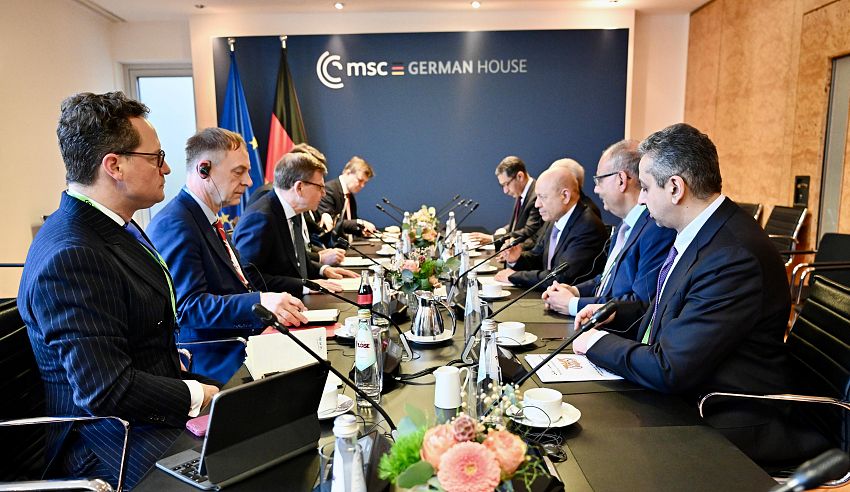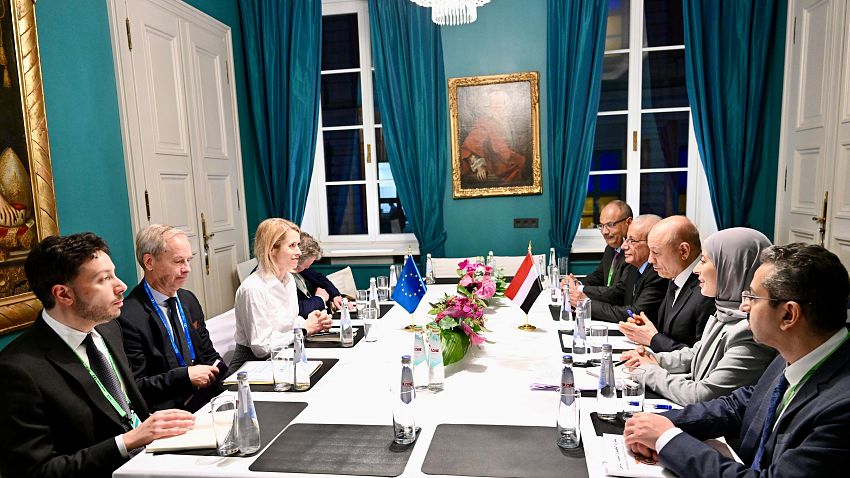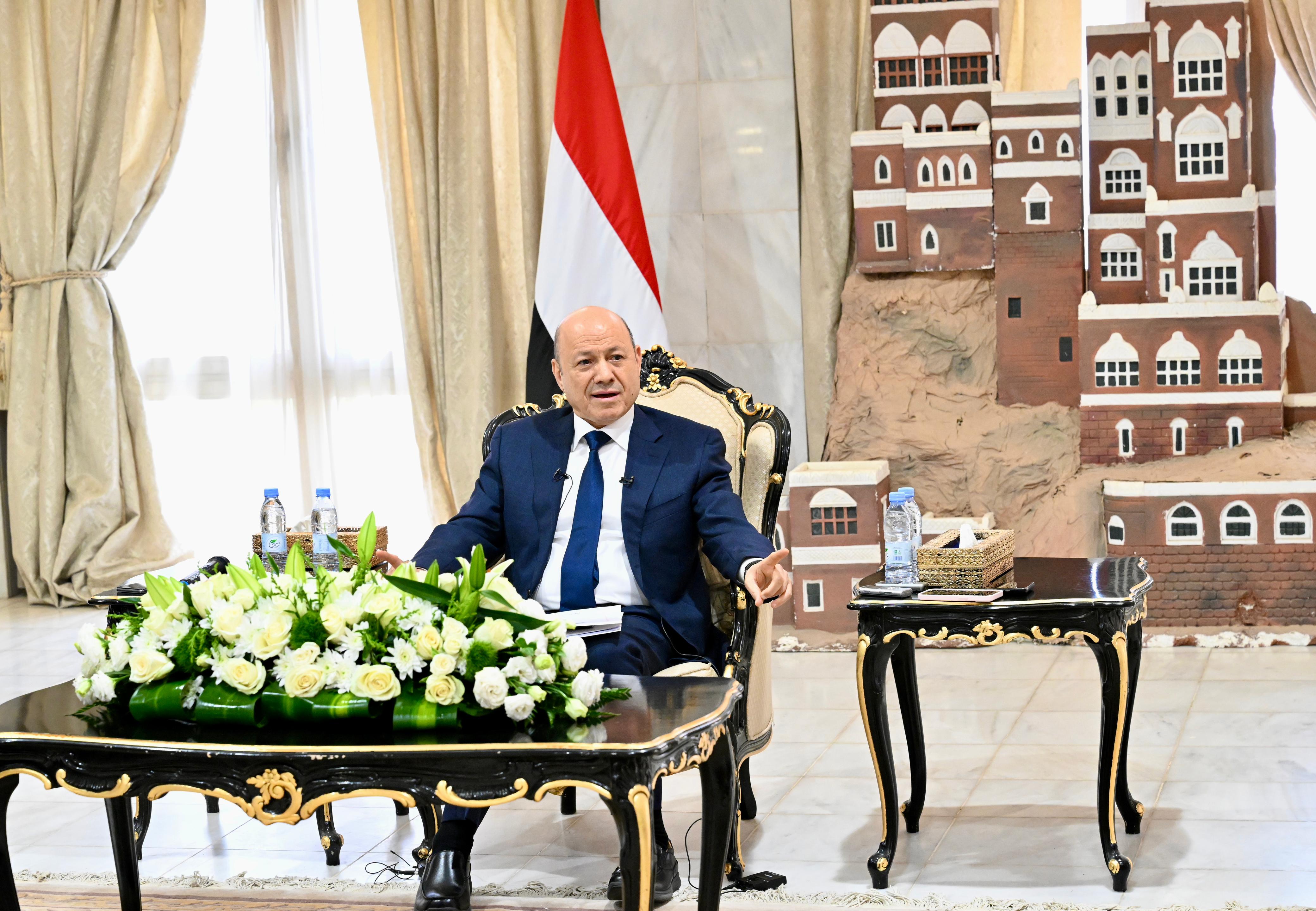
President Al-Alimi confirms: restoring state institutions is the best way to enhance maritime, regional and international security
Riyadh
His Excellency, President Dr. Rashad Mohammed Al-Alimi, President of the Presidential Leadership Council, renewed today, Saturday, the call to support the capabilities of the Yemeni government and enable it to restore state institutions. As this is the best way to enhance regional and international security, stability and put an end to the threats and attacks of the Houthi militias and terrorist organizations on global shipping and trade lines.
The President of the Presidential Leadership Council said during a meeting with media correspondents and international news agencies, “We have been saying on all occasions that the best way to secure the entire Yemeni mainland will not be achieved except by supporting the capabilities of the legitimate government and enabling it to restore state institutions and port cities, which have been turned today into platforms for threats against maritime, regional and international security.
His Excellency the President also renewed the Presidential Leadership Council and the government’ s welcome to any international effort to help eliminate terrorist organizations, especially the Houthi militias, which are designated by the Yemeni government and the Gulf regime as a terrorist organization, just like Al-Qaeda and ISIS. His Excellency noted in this context the US administration’s designation for the Iranian militias in Yemen a global terrorist organization.
In this context, he stressed that any real international effort to help eliminating these organizations had been, and still welcomed by successive Yemeni governments.
The President of the Presidential Leadership Council pointed out that supporting the Palestinian cause is through Arab unity and ending the wars in the region instead of further aggravation and fragmentation, in a comment on the Houthi militias’ claims that their terrorist attacks on international shipping lines and commercial ships come to express their alleged solidarity with the Palestinian people.
The President recalled the firm position of the Presidential Leadership Council and the government on the issue of the Palestinian people and the grave Israeli violations in the occupied territories. He said that the Palestinians, today need life-saving aid and a unified and effective diplomatic movement more than anything else to control the Israeli plan to liquidate the Palestinian issue and displace the Palestinian people.
He stressed that the Houthi terrorist attacks in the Red Sea harmed the freedom of global trade and the peoples of the region, first and foremost doubling the suffering of the Yemeni people, who depend on 90 % of imports to survive. He explained that the Houthi militias were the ones who brought all these fleets to Yemeni waters with their terrorist attacks as an extension of their coup against the national consensus.
The President of the Presidential Leadership Council briefed the journalists, media correspondents and news agencies on the latest developments in the political and economic situation, the path of the peace process and its complications in light of the recent developments, reiterating the government initiatives to end human suffering as a result of the war sparked by the terrorist Houthi militia.
He pointed out that Iran at the end of the day did not appear to be satisfied with putting aside its agents in Yemen, "because the ceasefire agreement, specifically would mean stopping all hostilities on land, sea and air."
His Excellency said, "We are ready for peace and for that purpose we have made concessions in order to alleviate the suffering of the Yemeni people. Because peace is a Yemeni, regional and international interest, and the world's efforts must be united for this goal."
He pointed out that Iran does not want peace, whether in Yemen or elsewhere, and that the terrorist acts carried out by the Houthis in the Red Sea against commercial ships are to provide a service to Iranian expansion in the region.
President Alimi touched upon developments in the situation in Yemen and the region, pointing out the necessity of correcting the narratives related to these developments and their backgrounds, and knowing what is going on in Yemen closely and from reliable sources.
His Excellency pointed out the continuation of repeated attempts to bring the Houthis into the peace processes, starting from Geneva, Bern, Kuwait and Dhahran Al-Janoub, all the way to the peace map. All of these were attempts to impose peace.
Regarding the developments in the Red Sea, President Al-Alimi said, “This is not a new act, we had warned early on that Iran was planning to control the Red Sea. We referred to this in our speeches before the United Nations General Assembly, in which we warned the world of the danger of these Iranian-backed militias’ continued control over the Red Sea overlooking areas.
He pointed out that defensive operations are not the solution. However, the solution is to eliminate the Houthis' military capabilities, and to enter into a partnership with the Yemeni government to control these areas and restore state institutions, which is the only guarantor of security and stability not only for Yemen but for the region, stressing the importance of creating a regional and international institutional framework to protect the Red Sea.
He added, "There was an Iranian plan from an early age to control the Red Sea, and what we did to engage the Houthis into power or to be part of the political components, was destroyed by the Iranians with all this work carried out by the Houthi militias."
His Excellency the President called on the international community to implement Security Council Resolution No. 2216, as it is the one that would bring the Houthi militias to the dialogue table, expressing his confidence that the Yemeni issue will not be affected by any other issues in the world because it is a just issue.
During the meeting, His Excellency the President reviewed the first beginnings of the formation of the Houthi militia, which did not begin in the year 2004 or in the year 2014, as various accounts say in a number of media outlets. But rather it began at the beginning of the eighties of the last century after the return of Khomeini in 1979 to Iran and the beginning of Iranian policy to expand through the formation of cells affiliated with the Iranian regime in Yemen, coinciding with the establishment of Hezbollah in Lebanon.
His Excellency the President pointed out that the cells formed by Iran did not have a specific name at the time, but rather they were a cell that was trained in Iran. These cells began committing terrorist acts in Sana’a in 1984, attacking the Belqis Cinema with bombs, which caused the death of its guard and the injury of a number of citizens, attacking embassies, diplomatic missions and the use of incendiary materials against women. His Excellency confirmed that some of them were arrested and put on trial, while others of their leaders left for Iran, including Badr al-Din al-Houthi, the father of the so-called Abdul-Malik al-Houthi, the leader of the terrorist Houthi militia, and Abdul Salam Falita, the father of the spokesman of the terrorist militia, referring to the successive developments that ended with the militias’ coup against the national consensus and flaring the war that has been going on for ten years.
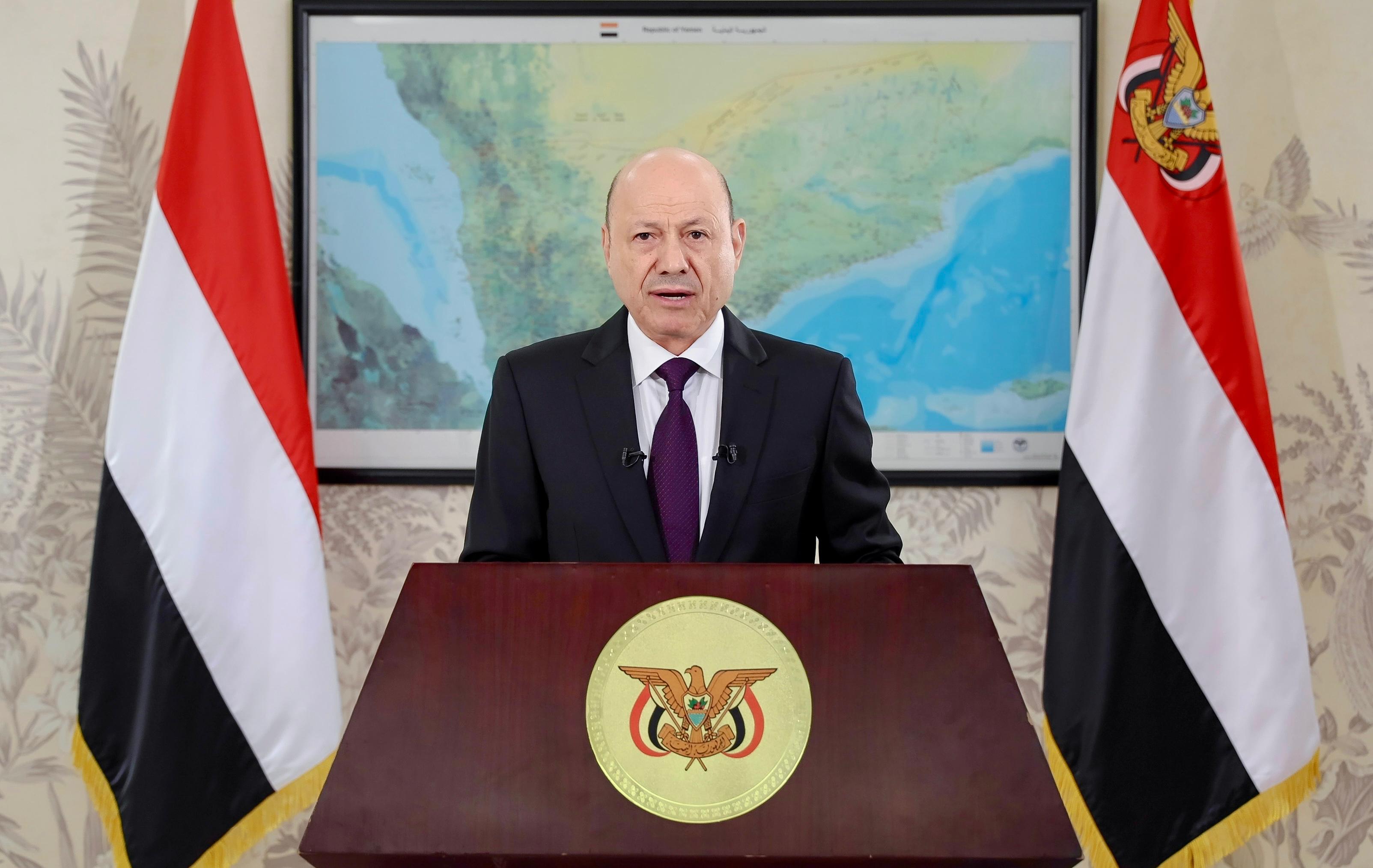
President Al-Alimi in Address to the Nation: Restoring Sana’a and a Just, Greater Yemen Will Remain a Collective National Goal
President of the Presidential Leadership Council, Dr. Rashad Mohammed Al-Alimi, called on the Yemeni people to seize the opportunity presented by the new transformations
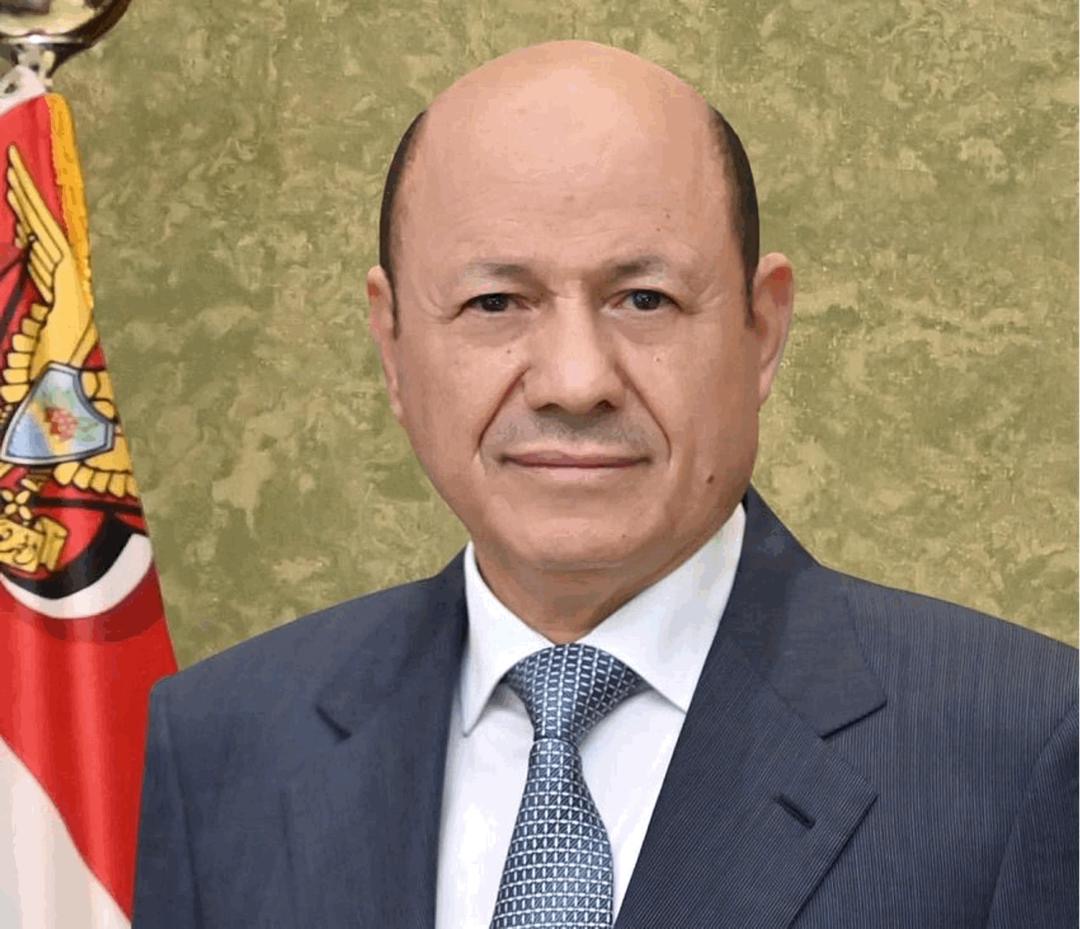
President Al-Alimi Exchanges Ramadan Greetings with Arab and Islamic Leaders
Tue ، 17 Feb 2026 11:31
